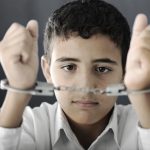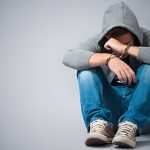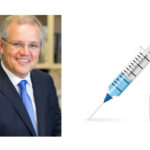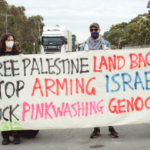Youth Suicide: Australia’s Hidden Epidemic

Australia is failing our young men.
A new report, called the Australian Youth Development Index (YDI), has found the suicide rate of young indigenous men to be the highest in the world.
The report, the first of its kind in Australia, was undertaken as part of International Youth Day commemorations, and looked at various challenges facing young Australians.
It is intended to inform youth development policy across a number of areas including education, health and wellbeing, employment and political and civic participation.
Among the findings are appalling statistics on youth suicide, suggesting that Aboriginal and Torres Strait Islander men between 25 and 29 have the highest suicide rates in the world.
“When we look at all the countries that are measuring suicide rates it is shocking that Aboriginal males are so stigmatised and that number is so high,” said Youth Action chief executive Katie Acheson.
The index also found that both Tasmania and Queensland recorded an increase in suicide rates, despite national suicide rates remaining steady.
Perpetual hopelessness
Earlier this year, the Australian Medical Journal reported that the number of suicides in the Kimberley region in Western Australia had more than doubled over the past decade, despite numerous commissions, inquiries and submissions over the years.
Health experts say many Indigenous people feel perpetually “hopeless”, and that by treating the problem as a mental health issue, the Australian government is being short-sighted and will not change the situation.
One expert who spent six years working in frontline Indigenous health services, said he saw some of the deaths as a response to “ongoing racism”.
“This isn’t racism about name calling or not being sat next to on a bus, it’s about the systemic exclusion of [Indigenous people],” Mr Bonson said, calling for Indigenous suicide prevention to be addressed culturally.
“We need to ensure is that we’re working on the protective resilience factors that make young people strong. The number one resilience factor is culture — if people understand where they fit into the world and their place in the world and are proud of their identity, then that is the number one protective factor,” he added.
Health and wellbeing is deteriorating
Overall, the YDI report found that ‘health and wellbeing’ was the category that deteriorated the most over the past 10 years. This is thought to be partly attributable to mental health issues, increasing use of alcohol and other drugs, and a growing sense of despair and hopelessness.
The research found that young people are struggling to find employment, with work opportunities declining in every state and territory. The Northern Territory, for example, has recorded a drop of 80 per cent since 2006.
In city areas, opportunities for education, employment and training were significantly higher than in the country. This gap is believed to be contributing to suicide rates as young people struggle to see a positive future.
In July this year, more than 21,000 Australians signed a petition calling for a royal commission into the “catastrophically high” levels of suicide among Aboriginal and Torres Strait Islander people.
Suicide prevention researcher, Gerry Georgatos, created the Change.org petition addressed to Prime Minister Malcolm Turnbull, saying that a royal commission is “the only shot we have left” at addressing the issue.






